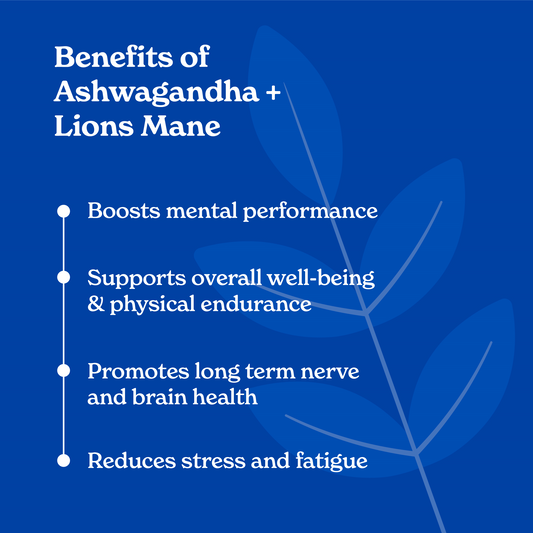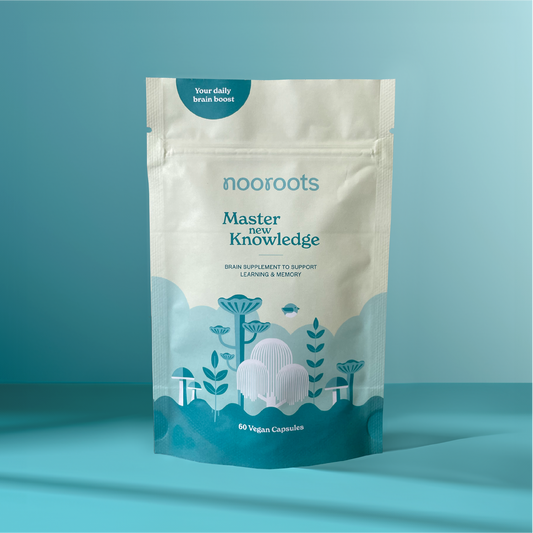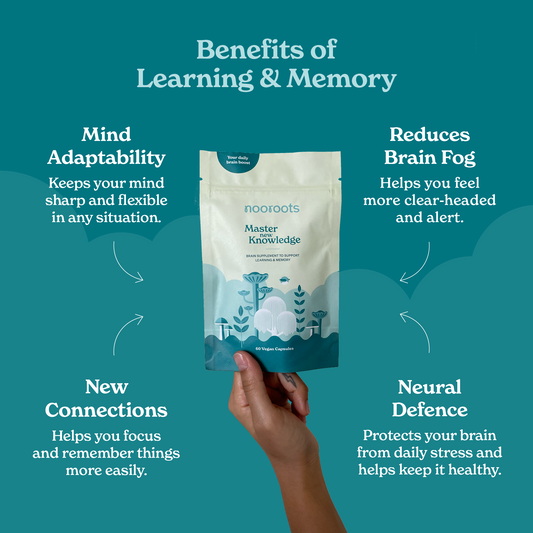Expert Writer and Contributor ✓
About the Author
Charlotte was awarded a Master of Science degree in chemistry from the University of Bristol. She is currently completing a PhD at the University of Leeds.
About the Contributor
Mus was awarded a Master of Science degree in Medical Biotechnology and Business Management from the University of Warwick.
The human eye. A marvel of evolution. A machine that converts electrical energy into chemical signals that inform our brains of the beauty (and dangers) of everyday life. A portal to perceiving what we think of as reality.
Venturing deep into the Amazon basin, suffocated beneath the vast tropical canopies, the Guarana shrub fights for its very survival. It must climb, and climb higher than any of the other plants inhabiting the forest. 5, 10, 20, 30 - up to 40 feet high it towers above its neighbours.
At last the Guarana pierces the treeline and feels the warmth of the Brazilian sun on its leaves. When it’s prized fruits start to bare, so does an eery resemblance. A crimson red shell first forms which encases a black seed that itself is encompassed by a white aril.
The Eye of the Jungle is all seeing.
And all benefiting. The Guarana plant and its fruit has been cultivated by indigenous peoples of the Brazilian rainforest for centuries. In their Native tongue, Guarana translates to the beginning of all knowledge.
Contents
- What is Guarana seeds?
- Guarana seeds Benefits
- Guarana seeds Mechanism of Action
- Guarana seeds Side Effects
- Recommended Dosages of Guarana seeds
Guarana Seeds: A Health Guide to Safe and Effective Supplementation

What are Guarana Seeds?
Guarana seeds, otherwise known as Paullinia cupana, are a fruit native to the Amazon basin. They have a rich history from their early use by indigenous tribes, despite the fruit's appearance, which is remarkably similar to the human eye1–3!
Guarana seeds are a natural source of caffeine, containing approximately 4-6 times more caffeine than coffee or tea. The fruit also contains compounds that induce brain boosting effects, such as theophylline and theobromine, as well as flavonoids that provide antioxidant properties2.
Guarana Seeds Benefits
Containing at least 14 bioactive compounds, guarana seeds are well-known for their therapeutic effects2. They can deliver a multitude of benefits, which include:
- Increased alertness: A double-blind, placebo-controlled trial in 18-24 year olds showed that guarana seeds improve performance in attention-based tasks4.
- Improved memory: Multiple animal and human studies have shown that guarana seeds enhance memory and mood. They also reduce anxiety and depression-like symptoms5–9.
- Antioxidant: Flavonoid compounds are potent antioxidants, protecting cells against oxidative stress, damage and death3,10,11.
Guarana Seeds Mechanism of Action
The main pharmacologically active compounds in guarana seeds are: caffeine, theophylline, theobromine and flavonoids1.
Theobromine and caffeine are methylxanthines. They promote incredible brain boosting effects, improving alertness, mood and cognitive performance4–7,12. As such, guarana seeds have been suggested as an alternative for fighting fatigue in cancer patients13.
Flavonoid compounds, such as catechin, are free radical scavengers. They remove reactive oxygen species to prevent oxidative stress to cells that can result in cell damage and death. This is particularly important for maintaining neurons to protect brain health14.
Guarana seeds can therefore be used as cognitive enhancers, improving focus, memory and mood, and protecting our neurons against harmful free radical species.
Guarana Seeds Side Effects
Guarana seeds have been shown to be non-toxic and safe at moderate levels. Due to their high caffeine content, the following side effects could occur at high doses1 (of more than 400mg):
- Heart palpitations
- Insomnia
- Anxiety
- Stomach upset
- Shakiness
- Seizures
Recommended Dosages of Guarana Seeds
There is no set Nutrient Reference Value (NRV) or Safe Upper Limit (SUL) for Guarana Seeds. Unlike vitamin and minerals, Governments typically do not establish recommended daily guidelines for plant extracts.
Scientific and clinical research has outlined appropriate guidelines.
It is generally accepted that doses of Guarana seeds 20-30mg/day can produce positive health benefits15. In a small clinical study doses up to 350mg (milligrams) a day did not produced any negative effects15.
Remember: if you are intaking a supplement in a product or in combination with other vitamins, minerals or plant extracts, then typically lower doses are sufficient to realize the desired benefits.
Learn More About NRV and SUL
The NRV and SUL are two values assigned to vitamins and minerals that are designed to provide guidance on how much of a specific nutrient can be consumed.
NRV can be defined as the amount of a specific nutrient needed to adequately meet known nutritional deficiencies. Whereas the SUL is the highest level of nutrient intake that is likely to pose no risk of bad health effects for almost all individuals in the general population.
It is very safe to consume levels of nutrients greater than the NRV as long as the intake is below the SUL.
At nooroots, we take both these values into consideration when performing research and product development. We work with our scientists and partners to select a nutrient level that is both safe and effective.
Conclusion
Like the Guarana shrub that reaches high into the sky, our shared human history towers over us all. In a time where mortal humans looked to the heavens and prayed to multiple Gods, a plant that bore fruits resembling the human eye must seemed almost celestial. We owe it to the Indigenous peoples of Brazil for finding and cultivating such a rich fruit.
Several animal and clinal studies have demonstrated various benefits that can be obtained by consuming Guarana. These benefits range from increased alertness, to improved memory and also protective qualities against cell damage and death.
In some studies, doses from 20 to 30 mg produced positive health benefits. Moreover, up to 350 mg did not have negative effects. Notably, the Guarana Seed is a high natural source of caffeine.
Learn more about the other vitamins, minerals and plant extracts we use to give your brain a daily boost
Evidence
- 12 Benefits of Guarana (Plus Side Effects). https://www.healthline.com/nutrition/guarana-benefits (accessed 2022-06-11).
- Da Silva, G. S.; Canuto, K. M.; Ribeiro, P. R. V.; de Brito, E. S.; Nascimento, M. M.; Zocolo, G. J.; Coutinho, J. P.; de Jesus, R. M. Chemical Profiling of Guarana Seeds (Paullinia Cupana) from Different Geographical Origins Using UPLC-QTOF-MS Combined with Chemometrics. Food Research International 2017, 102, 700–709. https://doi.org/10.1016/j.foodres.2017.09.055.
- Torres, E. A. F. S.; Pinaffi-Langley, A. C. da C.; Figueira, M. de S.; Cordeiro, K. S.; Negrão, L. D.; Soares, M. J.; da Silva, C. P.; Alfino, M. C. Z.; Sampaio, G. R.; de Camargo, A. C. Effects of the Consumption of Guarana on Human Health: A Narrative Review. Comprehensive Reviews in Food Science and Food Safety 2022, 21 (1), 272–295. https://doi.org/10.1111/1541-4337.12862.
- Kennedy, D. O.; Haskell, C. F.; Wesnes, K. A.; Scholey, A. B. Improved Cognitive Performance in Human Volunteers Following Administration of Guarana (Paullinia Cupana) Extract: Comparison and Interaction with Panax Ginseng. Pharmacology Biochemistry and Behavior 2004, 79 (3), 401–411. https://doi.org/10.1016/j.pbb.2004.07.014.
- Ruchel, J. B.; Braun, J. B. S.; Adefegha, S. A.; Guedes Manzoni, A.; Abdalla, F. H.; de Oliveira, J. S.; Trelles, K.; Signor, C.; Lopes, S. T. A.; da Silva, C. B.; Castilhos, L. G.; Rubin, M. A.; Leal, D. B. R. Guarana (Paullinia Cupana) Ameliorates Memory Impairment and Modulates Acetylcholinesterase Activity in Poloxamer-407-Induced Hyperlipidemia in Rat Brain. Physiology & Behavior 2017, 168, 11–19. https://doi.org/10.1016/j.physbeh.2016.10.003.
- Kennedy, D. O.; Haskell, C. F.; Robertson, B.; Reay, J.; Brewster-Maund, C.; Luedemann, J.; Maggini, S.; Ruf, M.; Zangara, A.; Scholey, A. B. Improved Cognitive Performance and Mental Fatigue Following a Multi-Vitamin and Mineral Supplement with Added Guaraná (Paullinia Cupana). Appetite 2008, 50 (2), 506–513. https://doi.org/10.1016/j.appet.2007.10.007.
- Haskell, C. F.; Kennedy, D. O.; Wesnes, K. A.; Milne, A. L.; Scholey, A. B. A Double-Blind, Placebo-Controlled, Multi-Dose Evaluation of the Acute Behavioural Effects of Guaraná in Humans. J Psychopharmacol 2007, 21 (1), 65–70. https://doi.org/10.1177/0269881106063815.
- Schimpl, F. C.; da Silva, J. F.; Gonçalves, J. F. de C.; Mazzafera, P. Guarana: Revisiting a Highly Caffeinated Plant from the Amazon. Journal of Ethnopharmacology 2013, 150 (1), 14–31. https://doi.org/10.1016/j.jep.2013.08.023.
- Roncon, C. M.; Almeida, C. B. de; Klein, T.; Mello, J. C. P. de; Audi, E. A. Anxiolytic Effects of a Semipurified Constituent of Guaraná Seeds on Rats in the Elevated T-Maze Test. Planta Med 2011, 77 (03), 236–241. https://doi.org/10.1055/s-0030-1250315.
- Fukumasu, H.; Avanzo, J. L.; Heidor, R.; Silva, T. C.; Atroch, A.; Moreno, F. S.; Dagli, M. L. Z. Protective Effects of Guarana (Paullinia Cupana Mart. Var. Sorbilis) against DEN-Induced DNA Damage on Mouse Liver. Food and Chemical Toxicology 2006, 44 (6), 862–867. https://doi.org/10.1016/j.fct.2005.11.010.
- Majhenič, L.; Škerget, M.; Knez, Ž. Antioxidant and Antimicrobial Activity of Guarana Seed Extracts. Food Chemistry 2007, 104 (3), 1258–1268. https://doi.org/10.1016/j.foodchem.2007.01.074.
- Martínez-Pinilla, E.; Oñatibia-Astibia, A.; Franco, R. The Relevance of Theobromine for the Beneficial Effects of Cocoa Consumption. Front Pharmacol 2015, 6, 30. https://doi.org/10.3389/fphar.2015.00030.
- De Oliveira Campos, M. P.; Riechelmann, R.; Martins, L. C.; Hassan, B. J.; Casa, F. B. A.; Giglio, A. D. Guarana (Paullinia Cupana) Improves Fatigue in Breast Cancer Patients Undergoing Systemic Chemotherapy. The Journal of Alternative and Complementary Medicine 2011, 17 (6), 505–512. https://doi.org/10.1089/acm.2010.0571.
- Bernatoniene, J.; Kopustinskiene, D. M. The Role of Catechins in Cellular Responses to Oxidative Stress. Molecules 2018, 23 (4), 965. https://doi.org/10.3390/molecules23040965.
-
Silvestrini, G.I., Marino, F. and Cosentino, M. (2013) ‘Effects of a commercial product containing guaraná on psychological well-being, anxiety and mood: a single-blind, placebo-controlled study in healthy subjects’, Journal of Negative Results in BioMedicine, 12(1). Available at: https://doi.org/10.1186/1477-5751-12-9.







